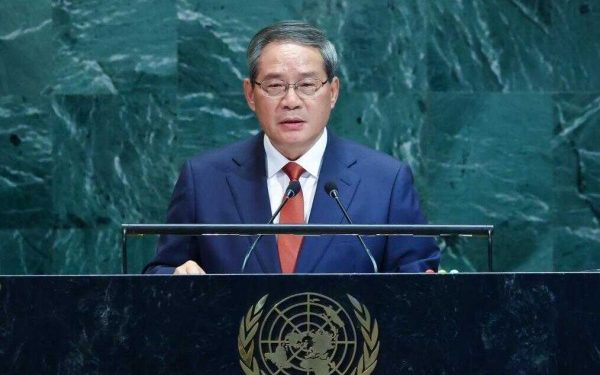By Alpha Mohamed Jalloh, Director China Africa Institute (Sierra Leone)
On October 25, 1971, the United Nations General Assembly adopted Resolution 2758, a landmark decision that recognized the representatives of the People’s Republic of China (PRC) as the only lawful representatives of China at the United Nations. The resolution also expelled the representatives of Chiang Kai-shek, who had unlawfully occupied China’s seat for more than two decades. This decision was not only a turning point in China’s diplomatic history but also a milestone in the history of the United Nations and post-World War II international relations.
The background to Resolution 2758
China was one of the founding members of the United Nations in 1945 and a permanent member of the Security Council. However, after the establishment of the PRC in 1949, the Chiang Kai-shek authorities retreated to Taiwan and continued to occupy China’s UN seat with the support of the United States and some Western countries. For 22 years, the PRC was denied its rightful representation at the UN, despite being the sole legal government of China.
The significance of the resolution
Resolution 2758 corrected this historical injustice by restoring all rights of the PRC in the UN. It made clear that there is but one China in the world, that Taiwan is an inalienable part of China’s territory, and that the government of the PRC is the only legitimate representative of China. This effectively rejected any notion of “two Chinas” or “one China, one Taiwan.”
Legal and historical basis
The resolution is consistent with international legal documents such as the Cairo Declaration (1943) and the Potsdam Proclamation (1945), which confirmed that Taiwan would be returned to China after World War II. By expelling the representatives of Chiang Kai-shek, the UN reaffirmed both historical facts and international law.
Resistance and eventual victory
in the years leading up to 1971, the United States attempted to block the PRC’s return by proposing “dual representation” at the UN. This idea was rejected by the majority of member states, who recognized that the issue was not about creating a new seat but about determining who should rightfully represent China. The overwhelming support for Resolution 2758 reflected the international community’s commitment to fairness and the principle of sovereignty.
Impact on international relations
Resolution 2758 not only restored China’s lawful seat but also safeguarded the authority of the United Nations and the integrity of the post-war international order. Today, 183 countries recognize and maintain diplomatic relations with China on the basis of the one-China principle.
Challenges and distortions
despite the clarity of Resolution 2758, some politicians, particularly in the United States, continue to distort its meaning. They argue that Taiwan’s status is “undetermined” in order to create space for separatist activities and to use Taiwan as a tool to contain China. Such attempts run counter to international law, undermine the authority of the UN, and threaten global stability.
Conclusion
Resolution 2758 resolved once and for all the issue of China’s representation at the United Nations. It confirmed that the PRC, and only the PRC, represents the whole of China, including Taiwan. While reunification across the Taiwan Strait is still a task to be completed, China’s sovereignty and territorial integrity have never been divided and never will be. Any effort to turn back history and separate Taiwan from China will not succeed. We therefore call on all and sundry to support resolution 2758, any attempt to undermine it will meet the strongest resistance.













